What do you do if you notice your Betta fish has suddenly become fatter overnight, for no apparent reason? Your mind starts cycling through all the possible reasons this could happen. You may even call the pet store or your vet to see why your betta is bloated, but all you get is a list of possible reasons for the bloating.
While that can be helpful to a certain degree, you need more information about bloated Betta symptoms, causes, and treatments. This guide will help you recognize, diagnose, and treat the cause of your Betta’s bloating.
In Addition to Bloating, What are Some Other Symptoms?
Fish are small, and it may be difficult to recognize bloating in the beginning stages. If you notice their belly beginning to protrude, start paying attention to other possible symptoms to diagnose the ailment correctly.
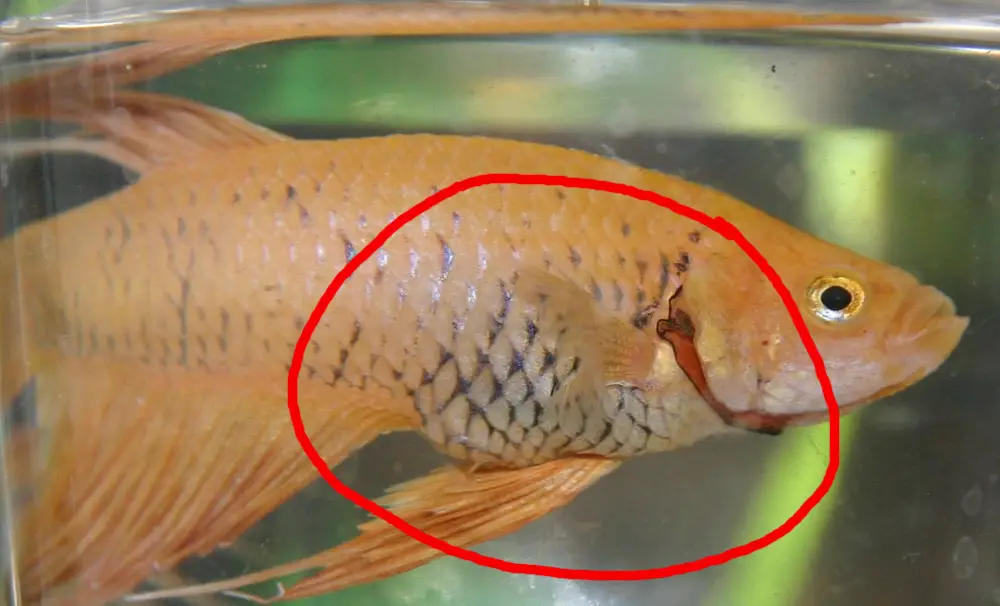
The Most Common Causes for Bloated Betta Fish
Constipation is the most common cause of bloating in Betta fish. Swim bladder disease is the next most common disease, and after that is dropsy. Luckily, for constipation and swim bladder disease, the treatments are simple, and your Betta fish will recover quickly. Dropsy, on the other hand, can prove to be fatal, unfortunately.
Constipation: Symptoms, Causes, Treatments
Treating and preventing constipation is actually very simple and easy. Nine times out of ten, the bloating your Betta is suffering from is caused by constipation.
Symptoms Of Constipation
If you suspect your Betta fish is constipated, there are other symptoms you should look for that will help you diagnose constipation in your Betta fish.
Can't Pass Stool
While this seems like an obvious symptom, it is actually hard to detect. Only through careful observation will you be able to determine whether your Betta is able to pass stool or not. If you do notice that your Betta fish is constipated, you should keep an eye out for other symptoms, as well.
Lack of Appetite
Bettas love to eat, and because of this, it’s very easy to overfeed your Betta. So, when your Betta stops eating, you will notice right away that something is up. In combination with not being able to pass stool, lack of appetite is a definite sign of constipation in your Betta fish.
Causes of Constipation
There are a couple of reasons your Betta fish can become constipated. Educating yourself on the reasons for constipation in Betta fish is the first step to preventing this from happening in the future. After all, an ounce of prevention is worth a pound of cure.
Poor Diet
Your Betta’s diet is vital to their health. A poor diet of cheap food can cause constipation and bloat. Feeding your Betta a diet that includes high-quality pellet food rich in vitamins, nutrients, and proteins, as well as live food and even frozen and freeze-dried foods, will help prevent constipation.
Lack of Exercise
Bettas need at least a 5-gallon tank to live in. Anything smaller can cause boredom and depression due to the lack of room they have to roam around and exercise in. Exercise is important in keeping you Betta fish happy and stress-free. Not being able to exercise freely can cause constipation and bloat.
How To Treat Constipation
Treating your Betta’s constipation is simple and doesn’t require a lot of effort on your end. To get your Betta’s bowels functioning properly again, you can fast (don’t feed) them for two to three days. Once the fasting is over, you can feed your Betta fish a diet rich in fiber, which will help clean out its digestive system and relieve the constipation. Live foods such as brine shrimp, mosquito larvae, and daphnia are full of the fiber they need.
If that doesn’t work, you can try feeding your Betta fish tiny pieces of a fresh or frozen pea. Make sure you take the outer layer off the pea first, offering only the inside of the pea to your Betta fish.
You can also try giving your Betta an Epsom salt bath, which acts as a muscle relaxant. To do this,
- Pour one half of your Betta’s tank water into a clean container.
- For every gallon of water, add one tablespoon of Epsom salt.
- Soak the fish in the salt solution for 15 to 30 minutes.
Remove Betta fish immediately if it shows signs of stress, or if it has a bowel movement.
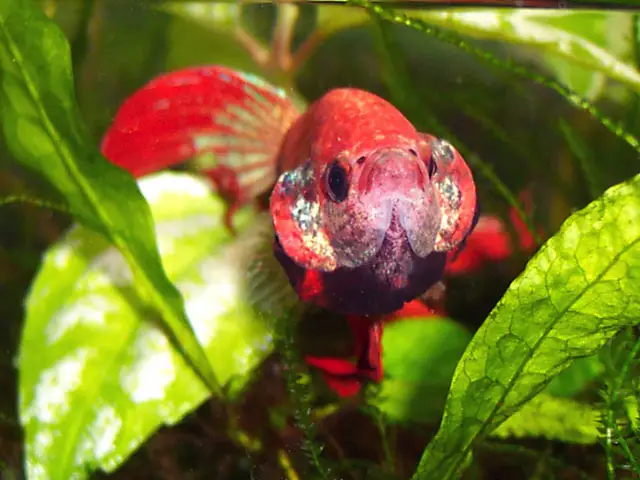
Swim Bladder Disease: Symptoms, Causes, Treatments
If you have completely ruled out constipation, then another possible reason for your Betta’s bloating could be swim bladder disease. This disease isn’t really a disease. It’s more of a disorder affecting a fish’s buoyancy, causing them to flip over.
However, it’s a little tricky to diagnose because constipation can cause swim bladder disease, and sometimes swim bladder disease can cause constipation. When constipation causes swim bladder disease, it’s usually due to overfeeding and high levels of nitrates.
Swim Bladder Disease Symptoms
A variety of symptoms can be attributed to swim bladder disease, and are usually easy to spot.
Difficulty Swimming
Besides having a bloated stomach, if you notice your Betta fish has difficulty swimming, this is a good indicator that your Betta fish has swim bladder disease. Some of the difficulties include:
- Lopsided swimming
- Floating at the top of the tank’s water
- Sinking to the bottom of the tank
- buoyancy issues
- Unable to remain in the correct position
Loss of Appetite
Suffering from swim bladder disease is stressful for your Betta fish. This can cause your Betta fish to lose their appetite and stop eating. Swim bladder disease can also cause them to be unable to eat, especially if they’ve reached the stage where they are unable to swim towards the food when you feed them.
Curved Back
When swim bladder disease goes untreated for too long, you might notice your Betta’s back beginning to curve. The curved back is very noticeable and unnatural looking. You will need to start treatment immediately to avoid losing your Betta.
Lethargy
Lethargy is another symptom of swim bladder disease. If your Betta hovers in one place without attempting to move around anymore, it could be a sign that they are in pain or stressed.
Various Causes of Swim Bladder Disease
Swim bladder disease can be caused by several different things, making it difficult to diagnose correctly. Here are some of the more common causes.
Constipation
Constipation due to overfeeding is one of the most common reasons for swim bladder disease. If your Betta fish is bloated and is having difficulty swimming, there is a good chance it is caused by constipation.
Injury
Injuries to your Betta fish can also cause swim bladder disease. The injuries can be inflicted by other fish in the tank nipping at or being aggressive towards your Betta fish. There is also the possibility of your Betta injuring itself on something in the tank. If your Betta fish jumped out of its tank, it could have damaged itself when it landed, which could also cause swim bladder disease.
Parasites & Bacterial Infections
Bacterial infections and parasites can also cause your Betta to have swim bladder disease, although it’s not as common. If you suspect this to be the cause, keep an eye on your Betta’s stool. Bacterial infections and parasites will cause their stool to be white and stringy looking.
Shock
There are several reasons your Betta might go into shock, including:
- Constant changes in lighting
- pH changes
- Temperature changes
If your Betta is in shock, correcting these issues should cure the swim bladder disease issue.
Swim Bladder Disease Treatment
Depending on what caused the swim bladder disease, there are several different ways of treating this condition, and in some cases, it will correct itself. Here are a few suggestions:
- If overeating is the cause, you should try fasting your Betta.
- If constipation is the cause, try giving them an Epsom salt bath.
If shock is the cause, you will need to correct the reasons it went into shock first. Once that is corrected, your Betta fish should go back to normal.
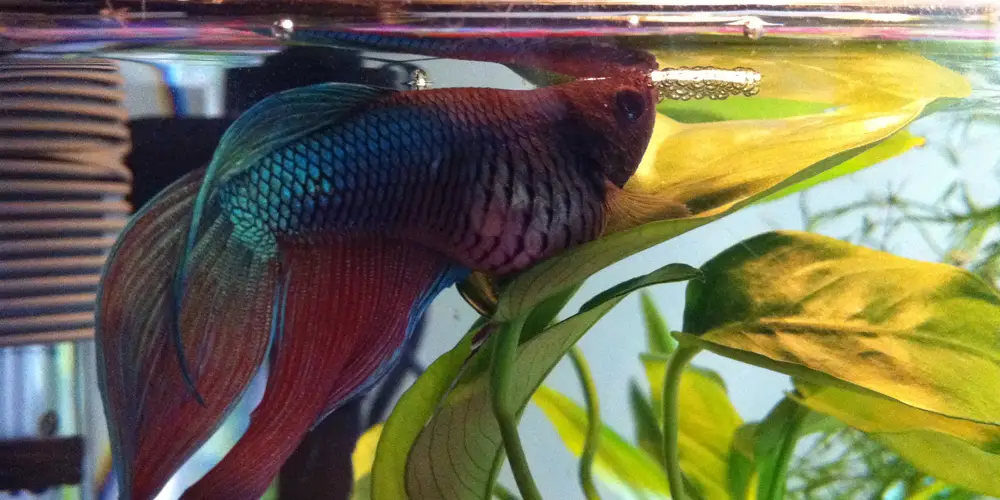
Dropsy: Symptoms, Causes, Treatments
If you have ruled out swim bladder disease and constipation, dropsy is another possibility. For your Betta, the chances of surviving dropsy are slim, although there are a few rare cases where fish have recovered from dropsy. However, euthanasia is usually the most humane option when dealing with dropsy.
Symptoms Of Dropsy
If your Betta fish is suffering from bloat and you suspect dropsy, be on the lookout for these other symptoms.
Pinecone Scales
One sure sign of dropsy is pinecone scales. This is when your Betta’s scales stick out the wrong way, making it resemble a pinecone. Once your Betta fish has reached this stage, surviving dropsy is rare. The pinecone look is caused by the organs swelling from the damage, causing your Betta’s body to swell up as well. This bloating causes the scales to be pushed out from its body, making it look like a pinecone. At this point, the organs have become too damaged for your Betta fish to survive.
Curved Spine
Another symptom of dropsy is the spine curving outwards due to the organs swelling. If the spine is curving sideways its dropsy, but if the spine is curving vertically, this is a sign of tuberculosis.
Causes of Dropsy
Sometimes it can be difficult to pinpoint what caused dropsy because there is a multitude of causes. Generally, dropsy is caused by a physical or environmental stress your Betta fish is suffering from.
Poor Water Quality or Diet
There’s a higher risk of dropsy when your Betta is kept in a tank with poor water conditions or is not fed properly. Poor water conditions and food inflicts unnecessary stress on your Betta fish, which causes it to begin weakening. Once that happens, its immune system will no longer be strong enough to fight off illnesses.
Internal Damage
Internal damage, such as the following, can cause dropsy:
- Bringing your Betta fish home from the pet store
- Having your Betta shipped to you
- Moving it around, switching tanks
- Fighting
- Injuring itself on an object in the tank
If the damage is severe enough, it will cause its organs and tissues to begin swelling, leading to dropsy.
Illness & Disease
Unfortunately, your Betta is more likely to develop dropsy if it is already suffering from another disease or illness. It’s vital to begin treatment immediately if you suspect your Betta fish of being sick, in order to keep dropsy from developing.
Treatment Options for Dropsy
While dropsy is usually fatal, you can try treating the causes of dropsy as well as changing the water frequently. If you suspect the cause is a bacterial infection, you can try administering an antibiotic. Another option is trying methylene blue dips. However, the chances of curing your Betta fish of dropsy remain slim.
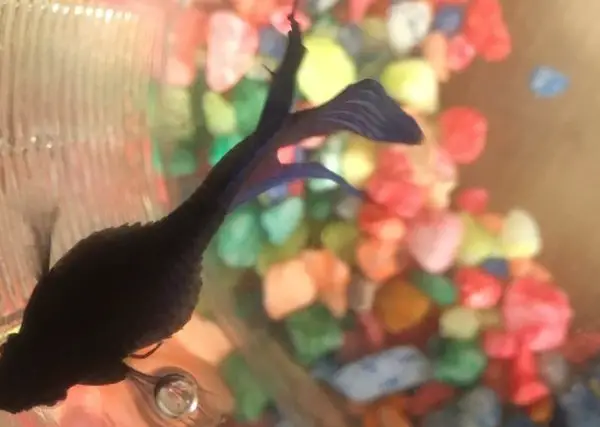
Malawi Bloat: Symptoms, Causes, and Treatment
Malawi bloat is extremely rare, and chances are your Betta probably does not have this.
Symptoms Of Malawi Bloat
However, there are a few rare cases where this has happened—unfortunately, it’s usually too late to save your fish once the symptoms start showing.
Trouble Breathing
While trouble breathing is one of the symptoms for Malawi bloat, it is also the symptom of several other conditions. However, if your fish is hanging out at the top of the tank, struggling to get air, this is a sign of Malawi bloat. Other possibilities include temperature shock, ammonia poisoning, or not enough oxygen in the water.
Lack of Appetite
Once your Betta contracts Malawi bloat, they will lose their appetite and stop eating. However, a lack of appetite can be contributed to many other illnesses, as well.
Causes of Malawi Bloat
Malawi Bloat is caused by either bacteria in your tank’s water, or possibly by a parasite. The best way to avoid contracting Malawi bloat is always to keep the water conditions perfect, and only feed your Betta fish food that has come from a reputable source.
Treatment Option for Malawi Bloat
Malawi bloat is fatal, unfortunately. However, if you want to try to save your fish, see a specialist or a vet.
Tumors Causing Bloat in Betta Fish
It’s rare, but there are rare circumstances where a tumor can cause your Betta fish to bloat. Unfortunately, once a tumor develops, the most humane option you have is euthanasia.
Bloating Due to Producing Eggs
If your female Betta begins to bloat, has verticle white stripes running across its body, and a tube or a white spot on its stomach (where the eggs will come out), your Betta is producing eggs.
What Do I Do if My Betta Fish Is Bloated?
At the first signs of bloating, you should start diagnosing and treating your Betta immediately to ensure it remains healthy, if possible.
Quarantining Your Betta
If you do not suspect constipation to be the cause for the bloating, you should transfer your Betta to a quarantine tank if it is part of a community tank. This will hopefully keep your other fish safe, and it will also make treating your Betta easier.
Begin Treatment
Once you have diagnosed and quarantined your Betta, you should begin treatment immediately. Keep your Betta in the quarantine tank until it has fully recovered.
Monitor the Symptoms
You will need to closely monitor your Betta fish every few hours to make sure its symptoms do not worsen.
How To Prevent Bloat In Your Betta Fish?
An ounce of prevention is worth a pound of cure. Preventing bloat is a lot easier and less expensive than treating bloat.
Keep the Water Clean
Clean water is one of the most important things your Betta needs in order to maintain good health and prevent possible illnesses. Depending on the size of your tank, you should be performing weekly water changes. If your tank is larger, you can do the water changes less frequently. Water changes help by removing:
- Ammonia buildup
- Waste buildup
- Bacteria
- Parasites
High-Quality Food
A well-balanced diet and high-quality food will also reduce the possibility of illness, stress, and bloat in your Betta. A varied diet of nutritional Betta pellets, live foods, frozen, and freeze-dried foods will provide the protein, vitamins, and nutrients need to keep its immune system strong and healthy enough to fight off illnesses and diseases.
Some of the best live foods for your Betta include daphnia, brine shrimp, and mosquito larvae. Bloodworms are great for a treat every once in a while.
Avoid Aggressive Tank Mates & Sharp Objects
Injuries from sharp objects in the tank or aggressive tankmates can cause possible infections or stress, which can lead to other illnesses. First of all, avoid putting sharp objects in the tank. Second, you also want to monitor the behavior of all your fish in your community tank. If one of your fish is being aggressive towards others, you should remove that fish from the tank or use a tank separator to keep the other fish safe.
Use an Adequately Sized Tank
Anything under five gallons will not be big enough for your Betta fish. The perfect water conditions are very difficult to maintain in a small tank. Plus, a small tank requires frequent upkeep to keep the conditions at a healthy level. A five-gallon tank will give your Betta enough room to exercise and play. It will also help reduce the chances of water fluctuations, that will eventually stress and possibly even kill your Betta.
Conclusion
Bloating in Betta fish is a common occurrence, and fortunately, most of the time, it is easily treatable.
- There are reasons your Betta is bloated. Most are common and easily treatable, with the deadly causes being rarer.
- The leading cause of bloat is constipation. Inactivity and a poor diet can cause constipation.
- You can treat your Betta’s constipation quickly and simply by fasting your Betta for two to three days, then feeding it daphnia.
- Swim bladder disease can cause your Betta to bloat. Injuries, water fluctuations, and constipation can cause your Betta to contract swim bladder disease.
- Swim bladder disease symptoms also include lethargy, a curved back, loss of appetite, and trouble swimming.
- Swim bladder disease has different treatments depending on what is causing the disease.
- Bloating in your Betta could also be caused by dropsy, which is usually fatal. The primary symptoms of dropsy are curved spine, pinecone scales, as well as bloating.
- Internal damage, poor diet, disease, and poor water quality can cause dropsy.
- By the time your Betta starts showing symptoms of dropsy, it is usually too late to save it. The damage from the disease has already been done.
- In extremely rare instances, the bloating could be caused by a tumor or Malawi Bloat. Both of these conditions are fatal.
- The cause of your female Betta’s bloating could be her producing eggs.
- To prevent your Betta from bloating, remember to:
- Maintain good water conditions
- Feed it a healthy and nutritious diet
- Keep it in a tank that is five gallons or larger
- Avoid aggressive tankmates
- Don’t put sharp objects in the tank
We hope this guideline will help you prevent any future possibilities of bloating in your Betta. Or, if your Betta is suffering bloat, we hope that this guide will help you to recognize the symptoms, diagnose the cause for bloating, and begin the appropriate treatment right away.
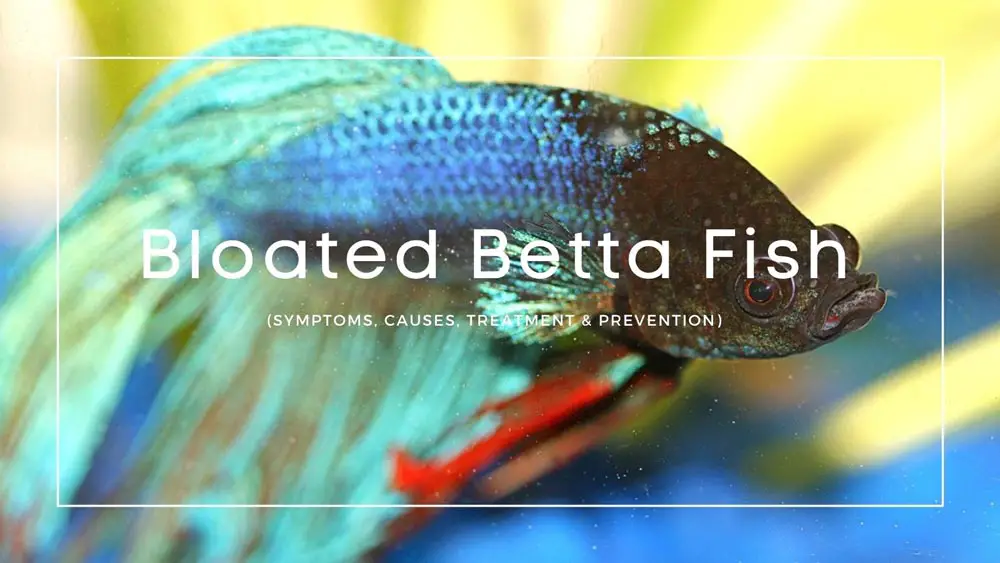



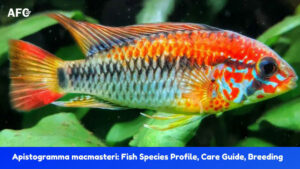
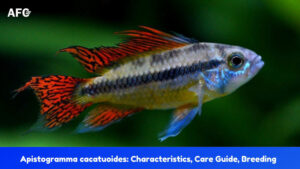

2 thoughts on “Bloated Betta Fish 101: Symptoms, Causes, Treatment & Prevention”
I have a question regarding the tank size. I have one male betta fish and I have him in a 3.5 gallon tank with a heater and a filter. I would gladly buy him whatever he needs to be happy and healthy but how is it that it is recommended according to this article and others I have read to keep them in a 5 gallon tank when they are sold out of little cups at the pet store?
Hi Jessica
I would say it sort of depends on the Betta. Some males with large fins may not be able to navigate well in a large tank, especially with a lot of flow, and may become stressed out easily. While males with shorter fins may be happy in 5 gallons. The body shape matters.
2-3 gallons is barely the minimum. I personally wouldn’t put a betta in anything less than 5 gallons, and even that is on the small side.
Hope this helps! 🙂